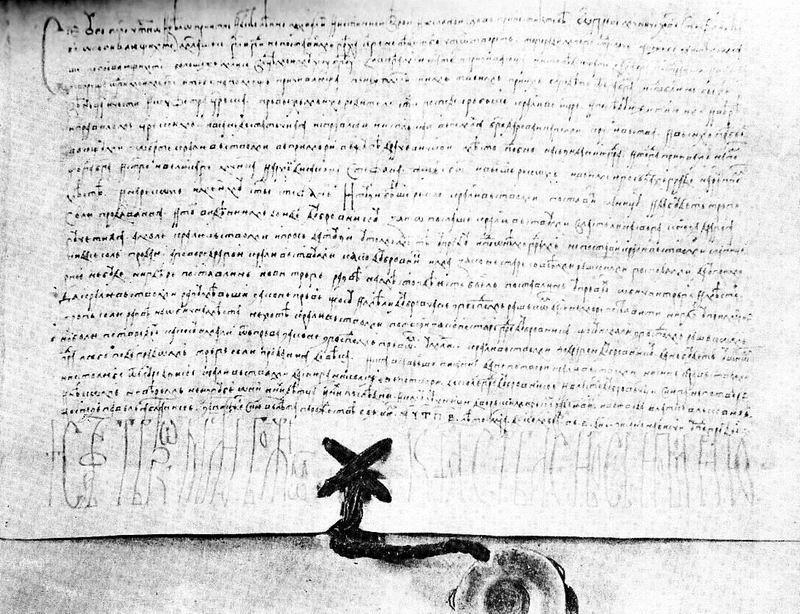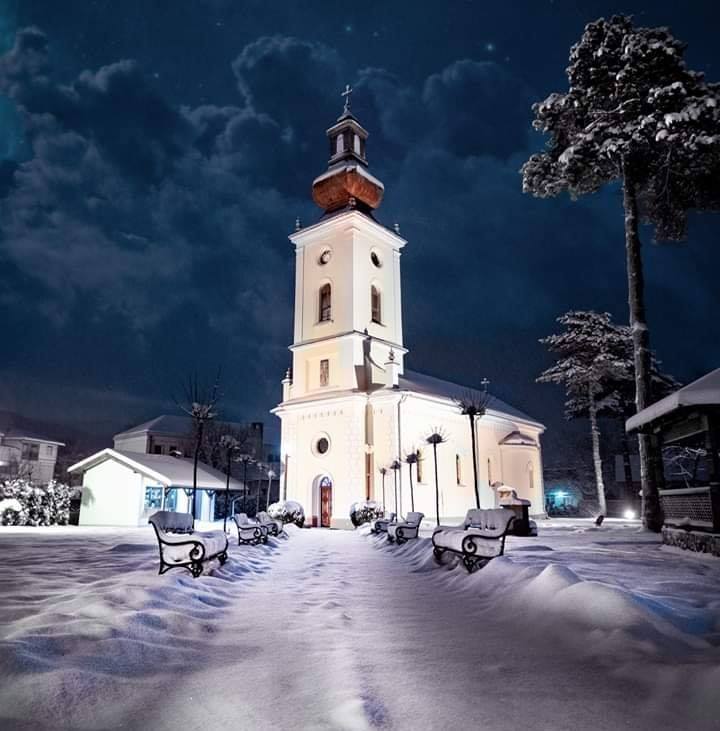It is very pleasant to celebrate You as is fitting, and with true faith, and with this, therefore, devout and joyful word to address You, O Protomartyr of Christ, Stefan. You, on the other hand, prayed for those who stoned you, saying: “Lord, do not charge them with this sin, for they do not know what they are doing.” For this reason, O much-suffering one, as you prayed for those who stoned you, pray even more for my Lord Christ the God, for the one who always prays to You, invokes You, and acknowledges You as a sufferer for Christ, and who performs all good deeds in our Lord God, invoking You for help, because by Your prayer, I received grace from our Lord God and was deemed worthy of the crown, honor, and scepter of my holy royal parents, the former Serbian rulers, kings and tsars, following their lives and imperial laws, correcting all deficiencies and governing in the lands of my God-granted kingdom. And residing in them, my kingdom was established in the Primorje.1
In the Župa of Dračevič,2 a place was chosen to build a town. And then I called upon the help of the Lord God and the Holy Great Martyr and Archdeacon Stefan, as I mentioned above, and in his name, I built a city in the said place. And I named it Saint Stefan. And it pleased my kingdom to set up a salt pan there and to have a square for the sale of salt.
And the word reached Dubrovnik. Therefore, they sent to my kingdom their nobleman Knez Dragoje Gučetić, begging my kingdom and asking that there, in that place, in the city and beneath that city, my kingdom does not set up a salt pan, nor that salt be sold there. And Dragoje said to my kingdom how Dubrovnik has old agreements with all rulers of Raška3 that in Primorje, no new market should be set up anywhere except where the customary market was previously set up. Understanding the earlier agreements Dubrovnik had with the rulers of Raška, that in Primorje, no market for salt could be set up anywhere, except in customary places – my kingdom did not want to change the old agreements of the city of Dubrovnik that they had with the rulers of Raška, but even more strongly confirmed the earlier agreements they had with the previous rulers. My kingdom, through Dragoje, expressed regret to Dubrovnik: that in that city or beneath the city, there will never be a market for the sale of salt. And all that is written above, my kingdom, nor the son of my kingdom, nor anyone from the relatives of my kingdom will not change until Dubrovnik and the nobility of Dubrovnik change this or lose it by some unfaithful act, they or their children or their heirs.
The witnesses to this are: Court Steward Mirko Radojević, vojvoda Vlatko Vlković, and Knez Pavle Jablanić. This was written in 1382 after the birth of Christ, on the second day of December. Written in Bišće in Podgrada.
- STEFAN TVRTKO,
BY THE GRACE OF GOD, KING
OF SERBS AND BOSNIA AND PRIMORJE

The original is in the Dubrovnik Historical Archive – Documents and Acts of the XIV century, no. 122.
- Tran. note: “Primorje” literally means “the Littoral”. It is a common part of medieval Serbian titles, denoting the areas in the hinterlands of the Adriatic. This would roughly correspond to Dalmatia, Boka Kotorska, the Montenegrin coastal area and the northern part of Albania. Today, the Serbian Orthodox Church’s Archbishop of Montenegro and the Littoral (Vladika crnogorsko-primorski) still has it as a part of their official title. ↩︎
- Tran. note: the area today corresponds to Sutorina on the north-eastern part of the Boka Kotorska bay. ↩︎
- Tran. note: a medieval Serbian principality, first appearing under that name in 1189. The state formed the basis for the medieval Serbian kingdom and empire of the Nemanjić dynasty. The name name was applied to Serbs by Venetians, Germans and Hungarians (streets and toponyms in Hungary still have the Rac part in them to denote “Serbian”). The name is still preserved in Serbia as the Raška oblast and Raška county administrative units. ↩︎
Translated by Books of Jeremiah



